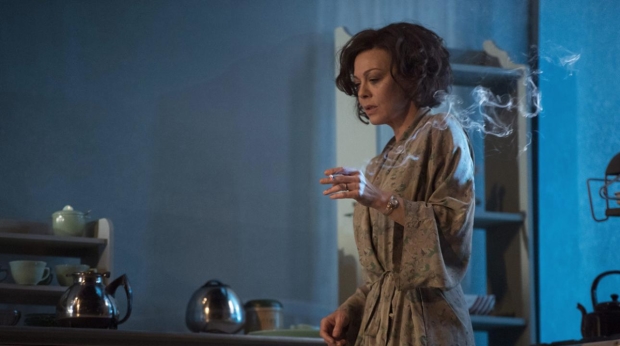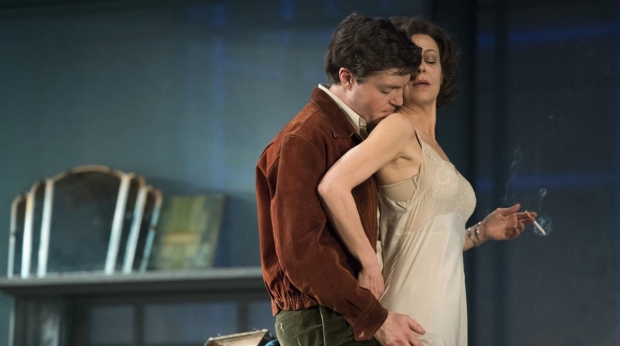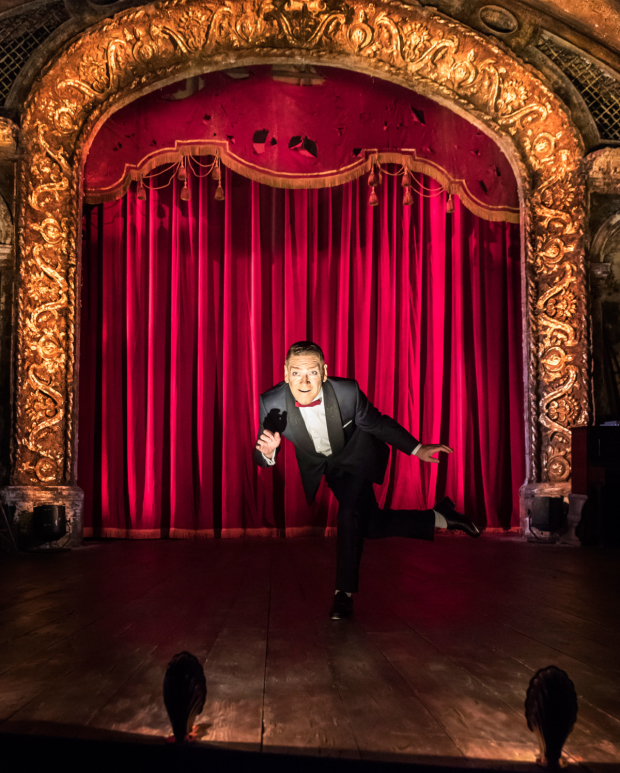Sarah Crompton: John Osborne and Terence Rattigan are more similar than you think

© Richard Hubert Smith
I have been thinking a lot this year about the relationship between Terence Rattigan and John Osborne – traditionally painted as one of utter opposition between a bastion of the theatrical establishment and the brave new world.
It has been the anniversary year of Osborne’s Look back in Anger, which first blazed onto the stage in 1956, the start of a revolution that brought topical political engagement onto the British stage. The Entertainer, which followed it a year later, cemented Osborne’s importance as a man who could describe the state of the nation in vivid theatrical form. Led by Kenneth Tynan, and inspired by some ill-advised comments by Rattigan himself, the older playwright was made to look irrelevant in the white hot heat of the new theatre.
But the differences between the men disguise profound similarities – the most crucial of which is that they are often both describing the same, fractured post-war society. Both have an acute eye and ear for all the hidden undercurrents of class and belief; both reveal a healthy contempt for the repression caused by the strait-laced conventions of a country in flux.
Both Osborne and Rattigan have this capacity to unleash the torments in human lives
As Kenneth Branagh told me when I interviewed him earlier this year "Osborne talks about his plays as lessons in feeling. And I think both he and Rattigan have this capacity to unleash the torments in human lives. In a very English way they are interested in undoing the cultural status quo by putting private guilt on a public stage. It’s dangerous, dirty and unusual. It is not part of what might have been expected to be their character or an English thing to do and yet they do it. There’s a searing honesty and a vulnerable tenderness at the heart of both."
In this context, it has been utterly fascinating to see The Entertainer, starring Branagh and directed by Rob Ashford, and Rattigan’s The Deep Blue Sea, starring Helen McCrory and directed by Carrie Cracknell, on successive days. Both productions – the first at the Garrick, the second at the National Theatre – take a radical approach to these classic plays, which are also two of my personal favourites.
But whereas I found the Rattigan deeply moving, and utterly absorbing – so good, I found I had forgotten what happened in the end – The Entertainer seemed stuck somehow, stubbornly failing to come to life despite all the production’s energy and effort. I think that has something to do with the way we view both playwrights.
Rattigan nowadays is seen as the natural heir of Ibsen and Chekhov, a man who described his own time and yet managed to reveal deep truths about human nature and our capacity for love. Cracknell’s production emphasises this timelessness, by setting the specific domestic drama of a woman who loves the wrong man too much in an almost metaphorical setting. Yet she pays close attention to the details of the time; the voices and attitudes are absolutely those of 1952 when adultery, homosexuality and suicide were all shaming, punishable offences.
Ashford seems to me to misunderstand the nuance of The Entertainer
In The Entertainer director Ashford also aspires to universality, seeking to highlight the play’s undoubted relevance for today. Yet to do this, he flattens the specific seediness of the world it describes, while simultaneously making its political points more emphatic and more knowing. He seems to me to misunderstand the nuance of the play – and that’s perhaps because we have come to see Osborne as an angry young man, an explicitly political playwright. Like Rattigan, his verities are eternal but they have to emerge from a very particular setting.
To take one small example. In the stage directions of The Entertainer, Archie’s father Billy is described as speaking with "dignified Edwardian diction" and that small note is crucial to understanding who he is. It makes his prejudice understandable; he’s a man who believes in the right of England to rule the waves who finds himself at the end of his days in a dingy boarding house surrounded by "Poles and Irish."
Entirely to dispense with that, as this production does, is to weaken the force of what Osborne is saying. His power is from the same source as his social observation. You can’t jettison one, and keep the other. And you certainly can’t just make him generically angry. I think we do him a disservice by doing so.
Anyhow, you don’t have to take my word for it. See what you think. Both productions are still running, and both are on show in cinemas nationwide.
The Deep Blue Sea screens on September 1 (go to ntlive.com for your nearest venue) and The Entertainer is on October 27, branaghtheatrelive.com.












